Showing 41-49 of 49 results
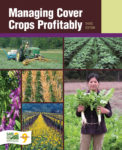
Managing Cover Crops Profitably, 3rd Edition
Managing Cover Crops Profitably explores how and why cover crops work and provides all the information needed to build cover crops into any farming operation.
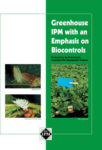
Greenhouse IPM with an Emphasis on Biocontrols
This in-depth manual was designed to help commercial greenhouse growers implement biological control and integrated pest management (IPM).
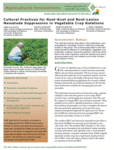
Cultural Practices for Root-Knot and Root-Lesion Nematode Suppression in Vegetable Crop Rotations
This publication discusses the use of non-host crops, sorghum sudangrass and castor bean grown as cover crops, RKN-resistant crops, and the application of poultry litter (PL) and PL compost to manage RKN and root-lesion nematode.
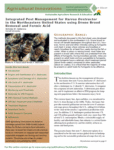
Integrated Pest Management for Varroa Destructor in the Northeastern United States using Drone Brood Removal and Formic Acid
This bulletin focuses on the management of the parasitic honey bee mite Varroa destructor (V. destructor) in the northeastern U.S. It contains information that will allow a beekeeper to: 1) identify V. destructor, 2) recognize the symptoms of mite infestation, 3) determine pest densities, and 4) implement an effective IPM program for keeping mite populations below the economic injury level.
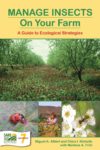
Manage Insects on Your Farm
While every farming system is unique, the principles of ecological pest management apply universally. Manage Insects on Your Farm highlights ecological strategies that improve your farm’s natural defenses and encourage beneficial insects to attack your worst pests.
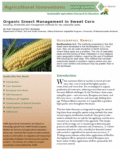
Organic Insect Management in Sweet Corn
This fact sheet discusses an integrated strategy for controlling three caterpillar species—corn earworm, European corn borer and fall armyworm—using methods that meet current organic certification standards. Any grower interested in methods that are safe for the applicator and the environment may be interested in this approach.
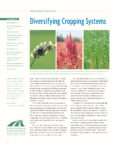
Diversifying Cropping Systems
This bulletin describes some of the many agronomic crop alternatives to use in rotations, with plentiful examples of on-farm successes.
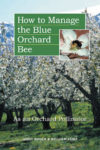
How to Manage the Blue Orchard Bee
How to Manage the Blue Orchard Bee explains how to use this alternative pollinator successfully, including nesting, rearing and wintering, how to manage predators, and more. Available only online.
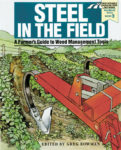
Steel in the Field
Weed control demands time, labor and expense for every farmer every year. Steel in the Field shows how today's implements and techniques can control weeds while reducing—or eliminating—herbicides. Available only online.